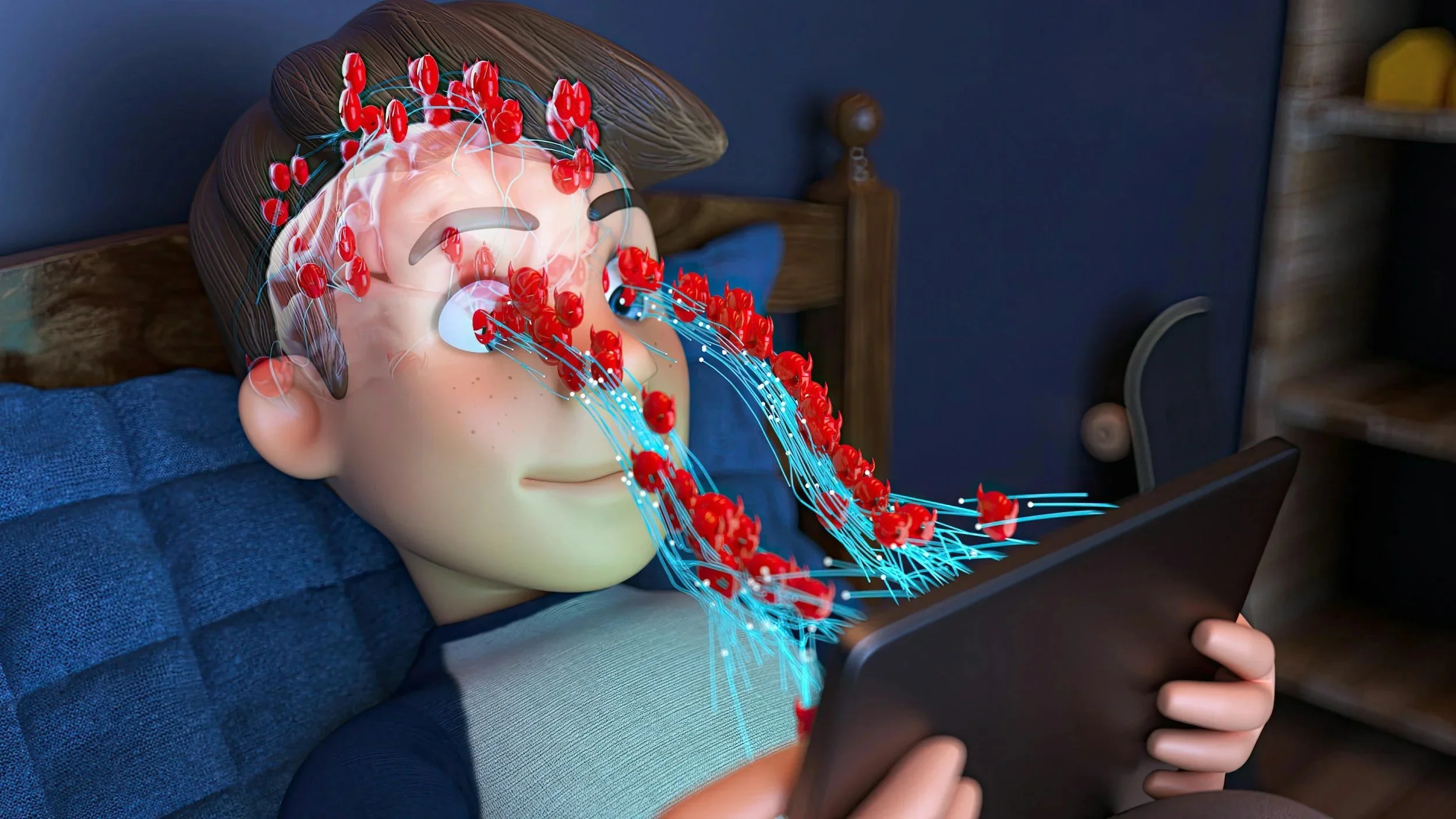
The lab explores how we learn and remember, focusing on the cognitive mechanisms that support learning across time and development. Unlike traditional approaches that focus on average behavior, we emphasize the dynamic nature of cognition—for example, how moment-to-moment brain and attentional states shape learning and memory processes. We are also interested in how these processes differ due to developmental changes in brain and cognitive maturation, differences in early life experiences (e.g., adverse life events), brain injury, and neurodevelopmental disorders.
Research Themes
Dynamic Cognition: Beyond Averages
Most research on memory performance averages across trials or individuals, assuming that “poor” performers simply have worse ability. We challenge this static approach: We track fluctuations in attentional and brain states over time - as people learn - and ask how they impact impact learning and memory. This dynamic, state-based approach reveals subtle modulators of memory that are hidden when using traditional averages. Using this approach, we are beginning to understand the various factors that help and constrain learning and memory - especially among those considered poor performers. We are recruiting graduate students to help us build this line of research.
Key Publications
Biba, T., Decker, A., Herrmann, B., Fukuda, K., Katz, C., Valiante, T., Duncan, K. Memory’s pulse: episodic memory formation is theta rhythmic. [preprint] Under Review at Nature Human Behaviour
Treves, I. N., Marusak, H. A., Decker, A., Kucyi, A., Hubbard, N. A., Bauer, C. C. C., Leonard, J., Grotzinger, H., Giebler, M. A., Torres, Y. C., Imhof, A., Romeo, R., Calhoun, V. D., & Gabrieli, J. D.E. (2024). Dynamic functional connectivity correlates of trait mindfulness in early adolescence. Biological Psychiatry Global Open Science [paper]
Decker, A. L., Duncan, K.+, & Finn, A. S.+ (2023). Fluctuations in Sustained Attention Explain Moment-to-Moment Shifts in Children’s Memory Formation. Psychological Science [paper] [code & data]
Decker, A.+, Dubois, M.+, Duncan, K.+, & Finn, A. S.+ (2023). Pay attention and you might miss it: Greater learning during attentional lapses. Psychonomic Bulletin & Review [paper] [code & data]
Decker, A., & Duncan, K. (2020). Acetylcholine and the complex interdependence of memory and attention. Current Opinion in Behavioral Sciences [paper]
Decker, A., Finn, A.+, & Duncan, K.+ (2020). Errors lead to transient impairments in memory formation. Cognition [paper]
Developmental Differences: Uncovering How Children Learn Differently
A related line of research focuses on how children learn differently from adults. We ask how the slow development of attention, decision-making, and memory systems drive developmental differences in learning. We are interested in characterizing what children do differently—sometimes outperforming adults and sometimes not—as their brains and knowledge bases grow. We are recruiting graduate students to help us build this line of research in the lab.
Key Publications
Decker, A. L., Duncan, K.+, & Finn, A. S.+ (2023). Fluctuations in Sustained Attention Explain Moment-to-Moment Shifts in Children’s Memory Formation. Psychological Science [paper] [code & data]
Decker A., Tandoc, M., Cho, H., Rebello, G., Mabbott, D., Duncan, K.+, Finn, A.S.+ Children’s Darting (Not Diffuse) Attentional Spotlight Reduces Memory Selectivity for Relevant Content [preprint] [data & code]. Under Review at Developmental Science.
Brain Plasticity and Early Life Experience
We are also very interested in how early life experiences set the stage for how our brains and cognitive systems develop, helping to explain the rich diversity observed across individuals. We have asked how early adverse life experiences, low socioeconomic status, and neurodevelopmental disorders and even brain injury shape how we attend, learn, and form memories.
Key Publications
Hurtado, H.+, Hansen, M.+, Strack, J.+, Vainik, U., Decker, A. L., Khundrakpam, B., Duncan, K., Finn, A. S., Mabbott, D. J., & Merz, E. C. (2024). Polygenic risk for depression and anterior and posterior hippocampal volume in children and adolescents. Journal of Affective Disorders [paper]
Decker, A., Duncan, K.+, Finn, A. S.+, & Mabbott, D. J.+ (2020). Children’s family income is associated with cognitive function and volume of anterior not posterior hippocampus. Nature Communications [paper] [code & data]
Decker, A. L., Leonard, J., Romeo, R., Itiat, J., et al. (2025). Exploration is associated with socioeconomic disparities in learning and academic achievement in adolescence. Nature Communications.
Decker, A. L., Meisler, S. L., Hubbard, N. A., Bauer, C. C. C., Leonard, J., Grotzinger, H., Giebler, M. A., Torres, Y. C., Imhof, A., Romeo, R., & Gabrieli, J. D. E. (2024). Striatal and Behavioral Responses to Reward Vary by Socioeconomic Status in Adolescents. Journal of Neuroscience [paper] [code & data]
Sekeres, M. J., Riggs, L., Decker, A., Medeiros, C. B. de, Bacopulos, A., Skocic, J., … Frankland, P. W. (2018). Impaired recent, but preserved remote, autobiographical memory in pediatric brain tumor patients. Journal of Neuroscience [paper]
Decker, A., Szulc, K. U., Bouffet, E., Laughlin, S., Chakravarty, M. M., Skocic, J., Mabbott, D. J. (2017). Smaller hippocampal subfield volumes predict verbal associative memory in pediatric brain tumor survivors. Hippocampus [paper]
Interested in joining the lab? Come join our projects focusing on the following themes:
Attention, learning, and decision-making as dynamic and interactive cognitive processes
Differences in attention and learning systems across development and in developmental disorders
How learning and memory systems are shaped by early life experiences
Translating basic science into applied interventions to boost attention, learning, and memory, especially in diverse samples



